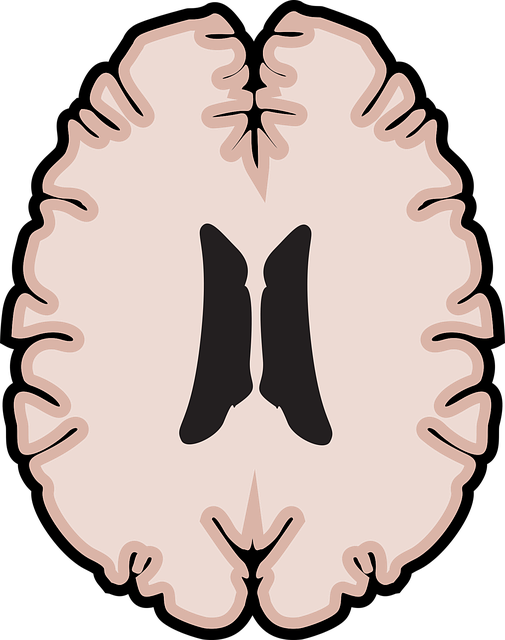Mental health conditions significantly impact social interactions, affecting various life aspects, including work in stress-prone cities like Boulder. Social skills training is a vital part of therapy here, focusing on communication, empathy, and participation to improve mental wellness and job satisfaction. Programs incorporating Mind Over Matter principles build self-esteem, confidence, and tailored coping mechanisms for unique challenges, helping individuals manage stress and enhance support networks. Boulder Workplace Issues and Job Stress Therapy integrates cultural sensitivity and Community Outreach Program Implementation to empower individuals in navigating workplace issues and improving overall well-being through comprehensive mental health care.
Social skills training is a powerful tool in supporting individuals with mental health conditions, particularly when navigating Boulder workplace issues and job stress. This article delves into the significant impact of mental health on social interactions and explores how structured training can enhance therapeutic outcomes. We examine the role of social skills training in therapy and provide practical strategies for managing workplace challenges, offering valuable insights for those seeking to improve their professional and personal lives.
- Understanding the Impact of Mental Health on Social Interactions
- The Role of Social Skills Training in Therapy
- Implementing Effective Strategies for Workplace Issues and Job Stress Relief
Understanding the Impact of Mental Health on Social Interactions

Mental health conditions can significantly impact an individual’s ability to navigate social situations, often leading to challenges in various aspects of life, including the workplace. In Boulder, where work-related stress and job issues are common, social skills training becomes a crucial component of comprehensive therapy. The interconnection between mental wellness and social interactions is complex; conditions like anxiety or depression can make even simple gatherings feel overwhelming, hindering one’s ability to form connections and maintain relationships.
Social skills training focuses on empowering individuals with strategies to enhance their interactions, fostering better communication, empathy, and overall participation in social activities. Mental wellness coaching programs that incorporate Mind Over Matter principles can help individuals develop self-esteem, build confidence in social settings, and learn coping mechanisms tailored to their unique challenges. By addressing these issues, individuals can better manage stress, improve their support networks, and ultimately, enhance their overall mental health and job satisfaction.
The Role of Social Skills Training in Therapy

Social Skills Training plays a pivotal role in comprehensive mental health therapy, especially for individuals navigating Boulder workplace issues and job stress. It goes beyond traditional talk therapy by equipping clients with practical tools to engage effectively in social interactions, enhancing their overall well-being. This type of training is particularly beneficial for those struggling with anxiety, depression, or social phobias that can impede their professional and personal lives.
In the context of Boulder Workplace Issues and Job Stress Therapy, skilled therapists incorporate techniques tailored to foster healthy relationships at work and in the community. Through role-playing scenarios, group discussions, and interactive exercises, clients learn to communicate assertively, manage conflicts, and build supportive networks. Moreover, integrating Community Outreach Program Implementation strategies enables individuals to connect with like-minded people, participate in meaningful activities, and develop a robust Self-Care Routine for Better Mental Health, ultimately improving their ability to cope with daily stressors and enhance their overall quality of life.
Implementing Effective Strategies for Workplace Issues and Job Stress Relief

In today’s fast-paced and demanding work environments, addressing Boulder workplace issues and job stress has become paramount for both employee well-being and organizational success. Social skills training plays a pivotal role in equipping individuals with effective strategies to navigate these challenges. Through tailored programs, mental wellness coaching becomes an accessible tool, enabling employees to manage stress, improve communication, and foster healthier work relationships.
The integration of cultural sensitivity in mental healthcare practice is essential when addressing workplace issues. Empathy building strategies, for instance, help create inclusive environments where diverse perspectives are valued. By enhancing these skills, organizations can ensure that their employees feel heard, understood, and supported, ultimately leading to increased job satisfaction and productivity.
Social skills training is a powerful tool for managing mental health conditions, offering individuals practical strategies to navigate social interactions with confidence. By addressing the impact of mental health on social relationships, this approach enhances well-being, particularly in the workplace. Effective therapy integrating social skills can alleviate Boulder Workplace Issues and Job Stress, fostering healthier, more fulfilling professional environments. Through targeted training, individuals gain the resilience to build supportive connections, leading to improved mental health outcomes.














